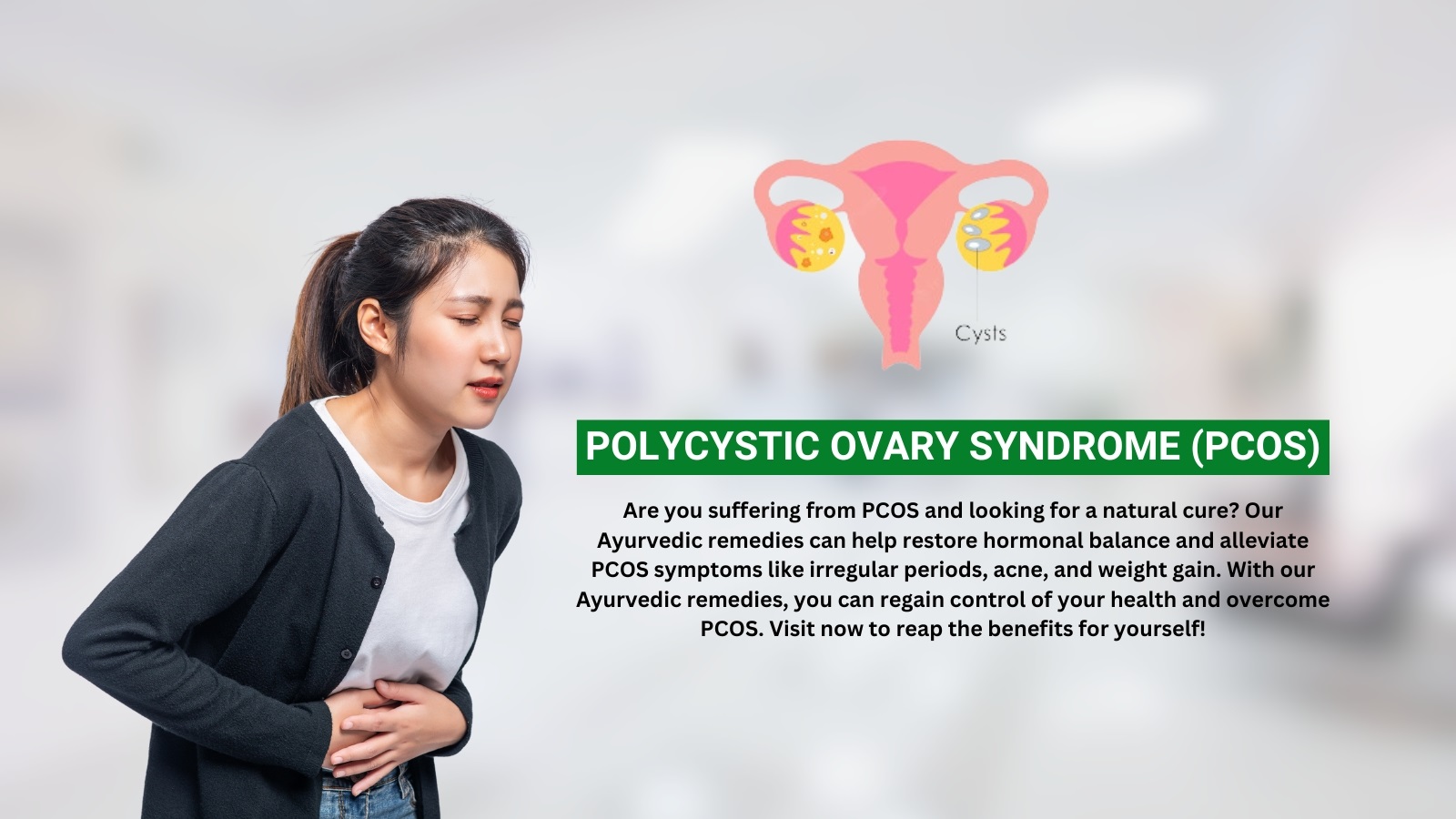Polycystic Ovarian Syndrome: Ayurvedic Insights and Treatments at Sai Ayush Ayurveda Hospitals
What is Polycystic Ovarian Syndrome (PCOS)?
Polycystic Ovarian Syndrome (PCOS) is a hormonal disorder common among women of reproductive age. It is characterized by the presence of multiple small cysts in the ovaries and can lead to irregular menstrual cycles, infertility, and other health issues.
Why Choose Ayurveda for Polycystic Ovarian Syndrome?
Ayurveda offers a holistic approach to managing PCOS by addressing the root causes rather than just the symptoms. Ayurvedic treatments aim to balance the body’s doshas (Vata, Pitta, and Kapha), improve metabolism, and promote overall well-being.
Percentage of Statistics: Hyderabad, India, and Globally
PCOS affects approximately 10% of women globally. In India, the prevalence ranges between 9-22%, with urban areas like Hyderabad seeing higher rates due to lifestyle factors.
Who is Frequently Affected?
PCOS commonly affects women of reproductive age, typically between 15 and 44 years old. It is more prevalent among women with a family history of PCOS or other endocrine disorders.
Causes and Aetiology
The exact cause of PCOS is unknown, but it is believed to be related to hormonal imbalances, insulin resistance, and genetic factors.
Signs and Symptoms
- Irregular menstrual cycles
- Excessive hair growth (hirsutism)
- Acne
- Weight gain
- Thinning hair
- Infertility
- Darkening of skin, particularly around the neck, groin, and underneath breasts
Diagnosis
PCOS is diagnosed based on a combination of clinical signs and symptoms, blood tests to measure hormone levels, and ultrasound imaging of the ovaries.
Types of PCOS
- Insulin-resistant PCOS: The most common type, characterized by high insulin levels and insulin resistance.
- Inflammatory PCOS: Linked to chronic inflammation and elevated levels of certain blood markers.
- Adrenal PCOS: Caused by an overproduction of androgens from the adrenal glands.
- Post-pill PCOS: Occurs after discontinuing oral contraceptives.
Prevention
- Maintain a healthy weight
- Follow a balanced diet rich in whole foods
- Regular exercise
- Manage stress effectively
- Avoid exposure to endocrine disruptors
Home Remedies and Yoga
- Cinnamon: Helps regulate menstrual cycles.
- Fenugreek: Improves insulin sensitivity.
- Spearmint Tea: Reduces androgen levels.
- Apple Cider Vinegar: Supports weight loss and insulin sensitivity.
Yoga
- Surya Namaskar (Sun Salutation): Enhances hormonal balance and overall health.
- Bhadrasana (Butterfly Pose): Strengthens the reproductive system.
- Dhanurasana (Bow Pose): Stimulates reproductive organs.
- Nadi Shodhan Pranayama (Alternate Nostril Breathing): Balances hormones and reduces stress.
Detailed Explanation of Polycystic Ovarian Syndrome Ayurvedic Treatment Options
Herbal Remedies
- Shatavari (Asparagus Racemosus): Balances hormones and promotes fertility.
- Ashwagandha (Withania Somnifera): Reduces stress and improves overall health.
- Turmeric (Curcuma Longa): Anti-inflammatory and antioxidant properties.
- Aloe Vera: Regulates menstrual cycles.
Panchakarma Therapy
- Vamana (Emesis Therapy): Detoxifies the body and balances hormones.
- Virechana (Purgation Therapy): Eliminates toxins and supports liver function.
- Basti (Enema Therapy): Enhances digestion and metabolic processes.
- Nasya (Nasal Administration): Clears nasal passages and balances doshas.
Diet and Lifestyle Modifications
- Diet: Emphasize whole grains, fresh fruits, and vegetables. Avoid processed foods and sugary beverages.
- Lifestyle: Regular exercise, adequate sleep, and stress management techniques.
FAQs
Q:What is PCOS in Ayurveda?
Ayurveda views PCOS as a result of an imbalance in the body’s doshas, primarily Kapha and Vata. Treatments focus on restoring balance through diet, lifestyle changes, herbal remedies, and detoxification therapies.
Q:Can Ayurveda cure PCOS?
While Ayurveda does not claim to cure PCOS, it offers effective management strategies that address the root causes and symptoms, helping to restore hormonal balance and improve overall health.
Q:What are the best Ayurvedic herbs for PCOS?
Some of the best Ayurvedic herbs for managing PCOS include Shatavari, Ashwagandha, Turmeric, and Aloe Vera. These herbs help balance hormones, reduce inflammation, and support reproductive health.
Q:How does Panchakarma help with PCOS?
Panchakarma, a set of Ayurvedic detoxification therapies, helps eliminate toxins from the body, improve metabolic processes, and balance hormones, thereby supporting the management of PCOS.
Q:Are there any side effects of Ayurvedic treatments for PCOS?
Ayurvedic treatments for PCOS are generally safe when administered by a qualified practitioner. However, individual reactions may vary, and it is important to follow the prescribed regimen and consult with your healthcare provider.
Discover the healing power of Ayurveda with our latest article at Sai Ayush Ayurveda Hospitals! Dive into the age-old wisdom that can rejuvenate your body and mind. Click here to read more:



0 Comments